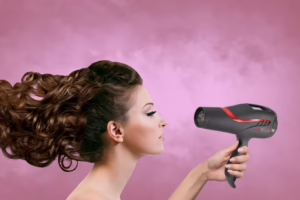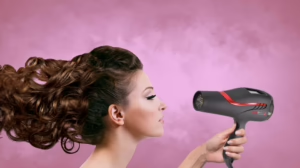Hair Myths Debunked: What You Need to Stop Believing Now
Hair care is surrounded by a myriad of beliefs, tips, and tricks that have been passed down through generations. While some of them are rooted in truth, many are simply myths that can lead to confusion and ineffective hair care routines. Understanding the truth behind these misconceptions can help you establish a more effective hair care regimen. Let’s dive into some of the most common hair myths and set the record straight.
Myth 1: Cutting Your Hair Makes It Grow Faster
One of the most widespread beliefs is that regular trims will encourage your hair to grow faster. While cutting split ends can prevent breakage and make your hair appear healthier, it does not influence the rate of hair growth. Hair growth occurs at the follicle level, deep in the scalp, and is not affected by what happens to the hair on your ends. The average hair grows about half an inch per month, regardless of how often you get it cut.
Myth 2: Washing Your Hair Daily is Bad
Another common myth is that washing your hair every day can strip it of its natural oils and lead to damage. However, the truth depends on your hair type, scalp condition, and lifestyle. For individuals with oily hair or those who exercise regularly, washing daily may be necessary to maintain cleanliness and prevent an oily buildup. On the other hand, for those with curly or dry hair, washing less frequently (every few days or once a week) might be more beneficial to retain moisture and natural oils.
Myth 3: Hair Products Can Change Your Hair’s Texture
From serums to creams, many products claim to change the texture of your hair permanently. However, the structure of your hair is genetically determined and cannot be altered by topical products. While some products can temporarily smooth, straighten, or enhance curls, they will wash out and not change your hair’s natural texture. For lasting changes in texture, chemical treatments or heat styling may be necessary, but these can come with potential damage if not done carefully.
Myth 4: A Specific Shampoo Will Cure Hair Loss
While it’s true that some shampoos can provide nourishment and strengthen hair, they cannot reverse or cure hair loss on their own. Hair loss is often caused by a combination of genetic, hormonal, and environmental factors. If you are losing hair, it’s essential to consult with a healthcare provider or a dermatologist to determine the underlying cause and appropriate treatment options, rather than relying solely on a shampoo.
Myth 5: Hair Extensions Damage Your Hair
There’s a belief that hair extensions inevitably lead to hair damage. While improper application and care can indeed cause breakage, when applied correctly and maintained well, hair extensions can be a safe way to add length and volume. It’s essential to choose high-quality extensions, work with qualified professionals, and follow recommended care guidelines to protect your natural hair.
Myth 6: You Should Always Use the Same Hair Care Products
Switching shampoo and conditioner brands frequently is often seen as a recipe for disaster. However, your hair’s needs change over time due to various factors such as seasonal changes, damage, and your hair’s overall health. If you notice that a product is no longer delivering the desired results, it’s okay to switch it up. The key is to pay attention to your hair’s response and adjust accordingly.
Myth 7: Sun Exposure is Harmless for Hair
While some sun exposure can have positive effects, prolonged exposure to UV rays can damage hair just as it does skin. It can lead to dryness, discoloration, and brittleness. To protect your hair from sun damage, consider wearing a hat or using hair care products that contain UV filters when spending extended periods outdoors.
Myth 8: Oiling Your Hair Regularly Will Make It Greasy
While oiling your hair can be a nourishing treatment, the misconception that it will always leave your hair greasy isn’t entirely accurate. The key is to choose the right oil and apply it in moderation. Certain oils, like argan oil or jojoba oil, can deliver nourishment without making your hair look greasy. Additionally, following an oil treatment with a clarifying shampoo can help wash away any excess without detracting from the benefits.
Conclusion
Understanding the truth behind hair care myths is essential for achieving healthy, beautiful hair. Instead of following outdated or incorrect beliefs, invest time in educating yourself about what works for your unique hair type and needs. Remember to prioritize products that nourish and suit your specific requirements, and don’t hesitate to consult with professionals for advice tailored to your situation. By debunking these myths, you’ll be on your way to loving your hair more than ever!
Footnotes: [modern_footnote_source_link]


























Add Comment